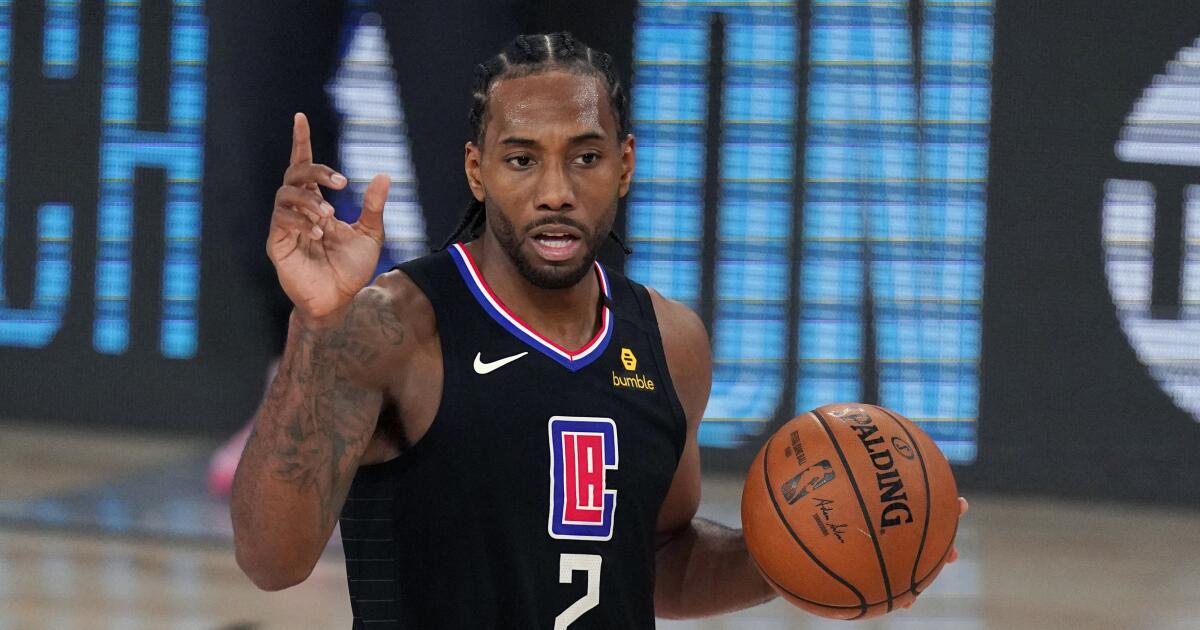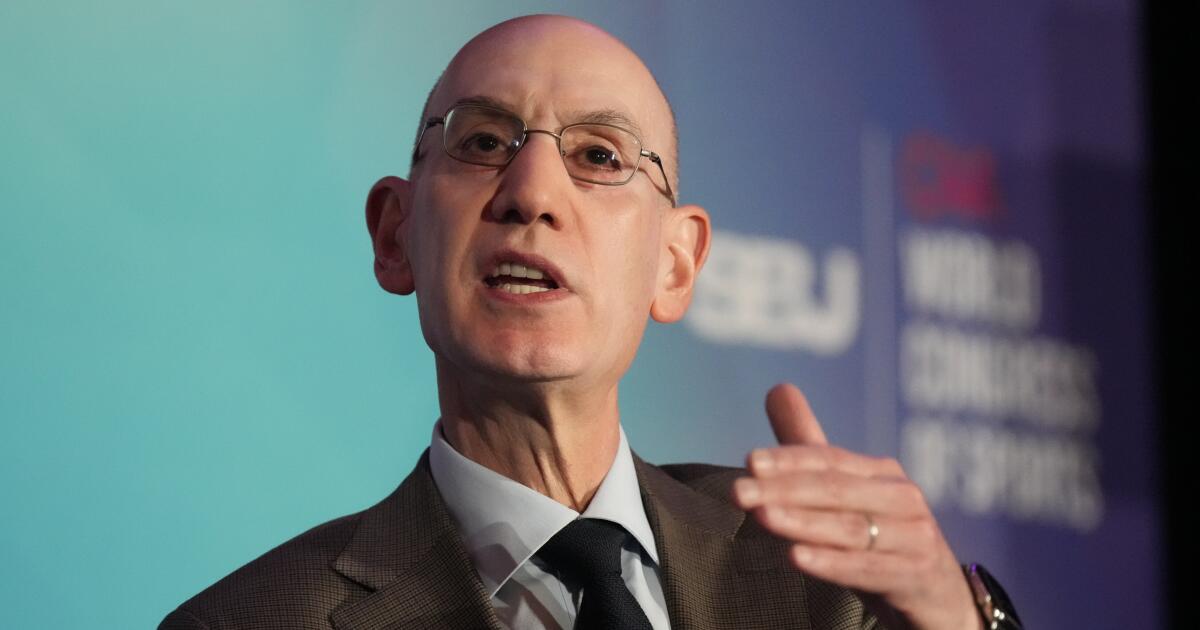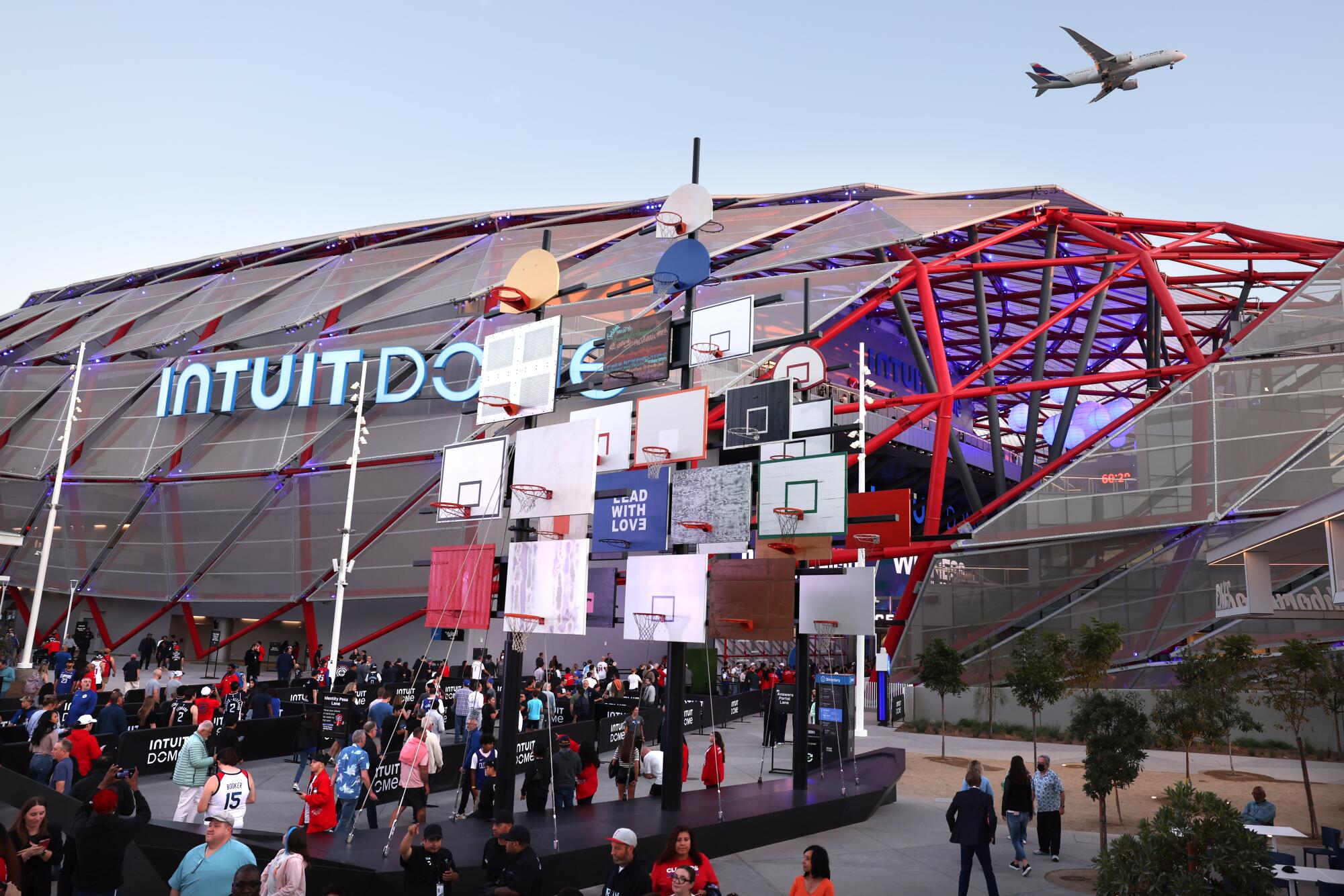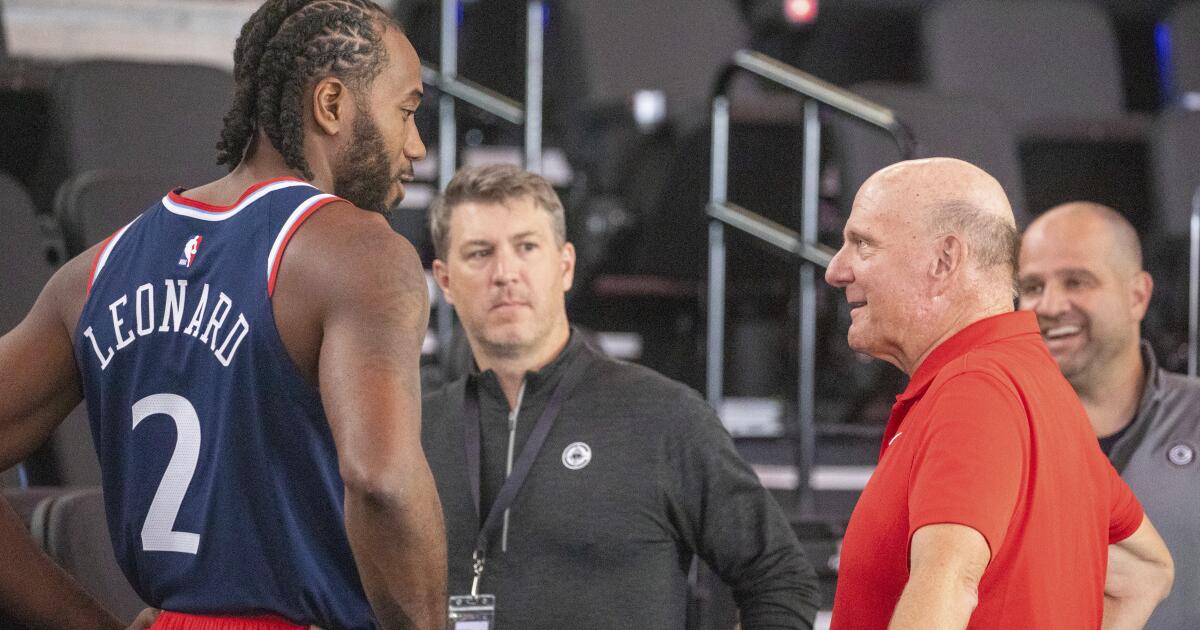Drake, DiCaprio, the Clippers backed this ‘green’ L.A. firm. It crumbled amid fraud claims
Aspiration Partners made a splash when it entered the green investing space in 2013.
The Marina del Rey firm billed itself as a socially conscious online banking company, offering investments and focusing its finances on the climate crisis. It also generated and sold carbon credits meant to help offset greenhouse gas emissions.
Soon, it collected celebrity investors such as Leonardo DiCaprio, Orlando Bloom, Robert Downey Jr., and Steve Ballmer, the former Microsoft chief executive, philanthropist and owner of the Los Angeles Clippers.
But 12 years later, things have turned sour.
Earlier this year, the co-founder and another top company official agreed to plead guilty to wire fraud charges and scheming to bilk investors using falsified documents. Aspiration went bankrupt.
And now, the company is at the center of a NBA investigation into whether a $28-million deal the firm cut with Clippers star Kawhi Leonard was designed to help the team circumvent the league’s salary cap.
The Clippers have strongly denied that, and said neither the team nor Ballmer played any role in Leonard’s deal and that there was no intention to violate any NBA rules. Leonard has also denied any wrongdoing.
In a statement, the Clippers said Ballmer and his family are “focused on sustainability” and built the Clippers’ home arena at the leading edge of environmental design. Aspiration was part of that effort, the statement said, and Ballmer was “duped on the investment and on some parts of this agreement, as were many other investors and employees.”
A review of hundreds of pages of court records offers a window into how the once high-flying green company fell amid illegal dealings and multiple federal criminal investigations.
A company’s rise and fall
Founded by Joseph Sanberg and Andrei Cherny, Aspiration Partners reportedly raised $110 million from venture capital funds in just its first few years of existence.
It came at a moment of rising concern about climate change, and Aspiration seemed to capitalize. Sizable deals rolled in, including a $315-million pact with Oaktree Capital Management and Ballmer.
The firm even partnered with rapper Drake in 2021, using its reforestation program to offset the artist’s estimated climate impact. The company at the time claimed its business partners and customers had funded the planting of 15 million trees over the course of a year.
In September 2021, the Clippers announced a deal with the company as the first “Founding Partner” for its state-of-the-art arena in Inglewood. The idea was fans would be able to offset their carbon impact when buying a ticket to watch the team. Aspiration even bid unsuccessfully for the naming rights to the venue, now known as Intuit Dome.
The partnership, the news release announcing it declared, “set a new standard for social responsibility in sports.”
But behind the cadre of celebrity sponsors and investors, court documents reveal trouble was brewing inside Aspiration.
In 2020, the company explored a potential $55-million loan from an investor fund in exchange for 10.3 million shares of stock, according to federal court filings. But the investor fund wanted a “put option” — a sort of safety net guaranteeing it would be able to sell its stock if Aspiration defaulted on the loan, according to federal complaints.
Sanberg, according to federal prosecutors, turned to Ibrahim Ameen AlHusseini, a venture capitalist and then-board member of Aspiration Partners.
According to a federal criminal complaint, Sanberg was aware AlHusseini didn’t have the funds to cover the “put option.” So he allegedly coordinated with AlHusseini to falsify financial records and inflate AlHusseini’s worth by tens of millions of dollars.
Federal prosecutors allege AlHusseini sent Sanberg a spreadsheet showing his investment portfolio from several years back and told Sanberg the spreadsheet was not accurate but a “hypothetical.”
Sanberg, according to the federal complaint filed against him, revised the spreadsheet to read as if it were from Dec. 31, 2019, and sent it to an investment advisor.
AlHusseini also used a graphic designer from Lebanon to falsify financial documents at least 24 times between April 2020 and February 2023, according to the federal complaint filed against Sanberg. The records sent to the financial advisor made it appear that AlHusseini’s investments and assets were worth more than $200 million, the records show.
But in reality, federal prosecutors allege his Bank of America account balance in September 2021 was $11,556.89. His Fidelity investment accounts, according to court records from federal prosecutors, totaled $2,963.63 at the time.
According to a federal complaint, Sanberg then refinanced the loaned $55 million, securing $145 million from another investment firm, again using a “put option” from AlHusseini. This time, AlHusseini promised to buy the shares for $65 million from that firm if Sanberg defaulted, according to the federal complaint.
AlHusseini did not have the funds to back that deal, federal prosecutors alleged in court papers. But he still banked $6.3 million for his role in securing it, the complaint alleged.
There were other signs the company was in trouble.
Federal prosecutors allege Sanberg moved money from his personal checking account between Aspiration and another one of his companies in March 2022, making it appear on paper as if new investments were coming in.
On Nov. 2, 2022, Sanberg defaulted on the loan, and AlHusseini agreed the following month to boost the put option value to $75 million.
Some contractors began to complain that they were not being paid, according to court filings. Lawsuits followed.
In July 2022, Cherny also notified the company he would step down as chief executive. The day after he and the company signed a separation agreement in October, Sanberg threatened to sue him, according to a letter from Sanberg’s attorneys sent to Cherny.
Cherny would later file suit against Aspiration Partners, alleging the company didn’t pay him the entirety of his severance package agreed to in October 2022, according to a complaint filed in federal court. The suit was settled out of court earlier this year.
Federal prosecutors filed charges against AlHusseini in October 2024. He later agreed to plead guilty to one count of wire fraud, as well as to work with federal authorities in their investigation.
He is expected to appear in court for a sentencing hearing on Feb. 26, according to court filings.
Aspiration Partners filed for bankruptcy in March.
Sanberg originally entered a plea of not guilty to the charges, but in August he agreed to plead guilty to two felony counts of wire fraud, according to federal prosecutors.
Court filings show he is expected in court on Oct. 20 for a change of plea hearing.
An NBA star’s deal
Aspiration cut its deal with Leonard in 2022. Although players are allowed to have separate endorsement and other business deals, the NBA probe is trying to determine whether the Clippers participated in arranging the side deal beyond simply introducing Aspiration executives to Leonard.
The investigation follows information detailed in the “Pablo Torre Finds Out” podcast, which reported that Leonard’s deal amounted to a no-work contract meant to circumvent the NBA’s salary cap rules.
The salary cap limits how much teams can spend on player payroll. It’s meant to ensure talent parity by preventing the league’s wealthiest teams from outspending smaller markets to acquire the best players.
Circumventing the cap by paying a player outside of his contract is strictly prohibited and can be severely punished.
Cherny, in a statement posted on X, disputed that the agreement with Leonard required no work from the basketball star.
“The contract contained three pages of extensive obligations that Leonard had to perform,” Cherny wrote in the Sept. 12 post. “And the contract clearly said that if Leonard did not meet those obligations, Aspiration could terminate the contract.”
In the statement, Cherny said he does not remember any conversations about the NBA’s salary cap when the contract between Leonard and Aspiration was signed.
“There were numerous internal conversations about the various things Aspiration was planning to do with Leonard once the 2022-23 season began, including emails from the marketing team about their plans,” he said.
Cherny declined to be interviewed for this article.
It was Aspiration’s collapse that shed light on the Leonard deal. According to bankruptcy filings, Leonard’s private company, KL2 Aspire, is listed as one of the company’s biggest creditors — being owed $7 million.
The Clippers are, by far, the biggest creditor listed for the company, with more than $30 million in outstanding debt.
In a statement, a spokesperson for the Clippers said the team terminated its relationship with Aspiration during the 2022-23 season, when the company defaulted on the agreement.
Ballmer has said he was duped by Aspiration, and insisted the Clippers followed all NBA rules. He also said he welcomed the investigation.
The Clippers signed Leonard to a four-year, $176-million contract in August 2021. In an interview with ESPN last month, Ballmer said that the sponsorship deal with Aspiration was completed in September 2021 and that the Clippers introduced Leonard to Aspiration two months later.
In a statement, a spokesperson for the Clippers said both the team and Ballmer were unaware of Aspiration’s suspicious dealings.
“Neither the Clippers nor Mr. Ballmer was aware of any improper activity by Aspiration or its co-founder until after the government instituted its investigation,” the statement read. “The team and Mr. Ballmer stand ready to assist law enforcement in any way they can.”



